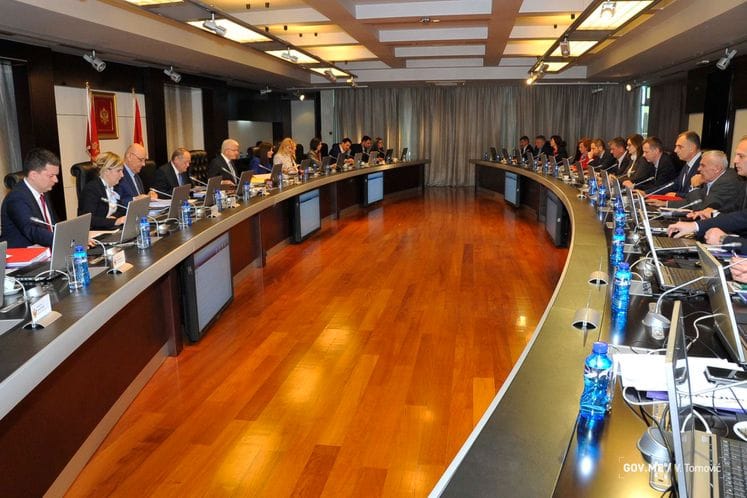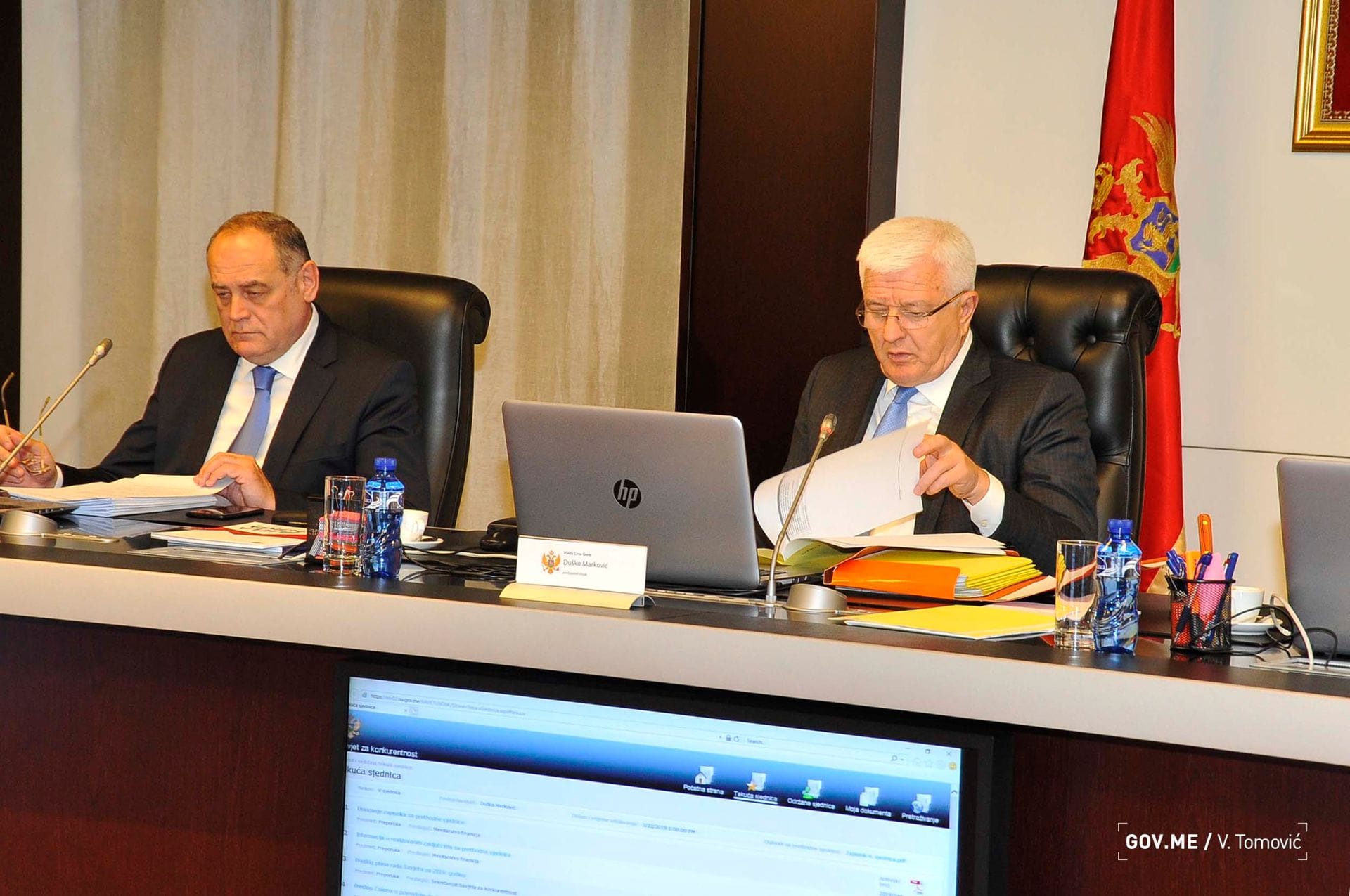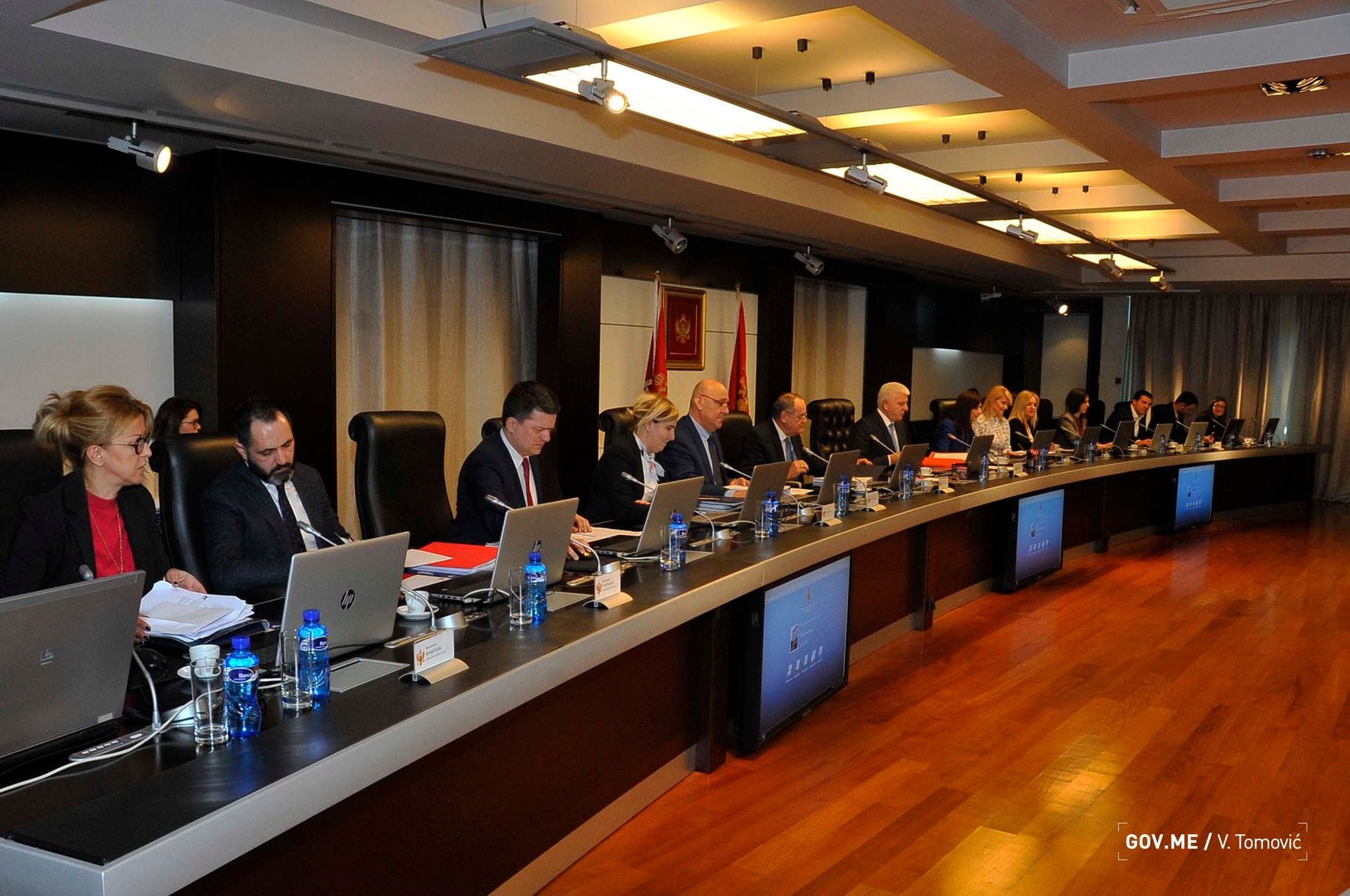- Government of Montenegro
Competitiveness Council's session: This year focus...
Please note: The page below represents the archived content relating to the previous Government of Montenegro. Some of the information might be inaccurate or outdated.
Archive
Competitiveness Council's session: This year focus will be placed on four key topics for business environment

Published on: Mar 23, 2019 • 12:38 AM Author: PR Service


Podgorica, Montenegro (22 March 2019) -- At its 5th session, chaired by President of the Council, Prime Minister Duško Marković, the Council for Competitiveness adopted the 2019 Plan of Action.
Based on the analysis of previous experience and recommendations of the Council's members, it was decided that the Council's sessions should focus on pre-defined key topics that should result in a positive impact on the business environment. The plan envisages that at least four sessions will take pace this year - one in each quarter. Following today's session, which analysed the Draft Law on Business Organisations, the topic of Tax Policy and Grey Economy is envisaged for consideration in the 2nd quarter, the Draft Law on Labour and other acts regulating this area will be discussed in the 3rd quarter, while Digitisation will be considered in the 4th quarter. .
The Competitiveness Council reviewed the Information of the Chamber of Commerce of Montenegro on the need for the completion of the Draft Law on Business Organisations. The Secretariat of the Council is tasked to set up a working group for the analysis of the situation in the field of company registration. The working group is tasked to present a concrete solution with a feasible action plan and bearers that will be defined in line with the objectives at the session in the third quarter: simplifying the business start-up process in terms of reducing the time needed to register a company and reducing the number of steps; enabling complete electronic registration; enabling electronic data exchange and company status; improving the Central Register of Business Entities of Montenegro's database and linking with other relevant registers; and defining the status and organisation of the Central Register of Business Entities.
The President of the Council said, concluding this item of the agenda, that the goal is to reach a legal solution that will be most suitable for further development of the Montenegrin economy, making the best use of potentials and creating new values, and that in the process of drafting this law, the administration should not allow itself to ignore any suggestion from the business community. "We need to have the best possible regulation in this area, because we are passing laws for a new era in which we will be part of the European and global markets," the Council's President Duško Marković highlighted.
The session also reviewed the Presentation of the Results of the White Paper: The Investment Climate in Montenegro in 2018, submitted by the Council of Foreign Investors in Montenegro. The Ministry of Finance and the Secretariat of the Competitiveness Council are tasked to draft, in cooperation with line ministries, statements on the recommendations set out in the White Paper. Recommendations refer to more efficient implementation of reforms in the part of registration of companies, further steps in improving tax procedures; modernisation of work of cadastral and notary services; as well as the continuation of work on: setting the basis for further investments in infrastructure, the growth and labour market flexibility, and the policy of improving the work of the administration and increasing its efficiency. The Council also recommended the adoption of the regulatory framework for public-private partnerships and further regulation of fiscal policy at the local level.
The Competitiveness Council reviewed the Key findings of the Report of the American Chamber of Commerce in Montenegro on the business environment for the period 2017-2018. The Report, which was presented on 4 March 2019, during the visit of the Prime Minister to the American Chamber of Commerce in Montenegro, reads, inter alia, that the overall assessment of the business environment in Montenegro for the period 2017-2018, on the scale from 1 to 10, is 6.29, which is a progress compared to the assessment from the previous Report for the period 2015-2016, when it was 5.57. "The confirmation of the improvement of the business environment is the fact that almost half of the companies participating in the survey believe that the business climate in their sector has improved, while in the previous report only 33% of our business entities replied that the improvement of the business environment is evident. Therefore, the basic finding is that the number of companies that notice the favourable development of the business climate is growing, and that the business environment has been advanced, but that there is room for further progress," said representative of the American Chamber of Commerce in the Council Marko Miročević.
The report contains recommendations, including the need to involve private sector representatives at the earliest stage in the process of drafting and adopting laws and other regulations that have an impact on the business environment and setting the basis for a competitive labour market, in line with the best practices of the labour legislation of the European Union.
Within this item of the agenda, the President of the Council noted that in the perception of the rule of law the most important challenge is the informal economy and the grey market, and that it is necessary to continue implementing the foreseen measures that have already yielded results.
President Marković informed the Council about the latest economic data published by the Monstat during the session. GDP growth in Montenegro in the fourth quarter of 2018 amounted to 4.8%, and in the whole of 2018, growth was, according to preliminary data, 4.9%. At the same time, President Marković said, growth in the EU28 stood at 1.5%. The EU member states that have higher GDP growth are, Malta, with growth of 7.2% and Hungary and Latvia, with growth of 5.1% in the 4th quarter. The countries of the region have lower rates than Montenegro in the last quarter of last year, namely Slovenia 4.1%, Northern Macedonia 3.7%, Serbia 3.4% and Croatia 2.3%, while Albania and Bosnia and Herzegovina have not published data.
"This is a remarkable result and a confirmation that we did a good job. I call on business people to reinvest part of their profits and create new jobs," concluded the Council's President, Prime Minister Duško Marković.
PUBLIC RELATIONS SERVICE OF THE GOVERNMENT OF MONTENEGRO
Related articles:
Presidents of northern municipalities: The Emirates and Alabbar are welcome in Montenegro Mar 24, 2025
Statement by Deputy Prime Minister Aleksa Bećić Mar 24, 2025
Is this page useful?
